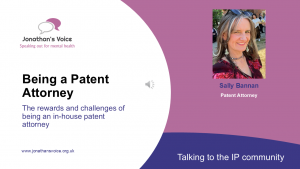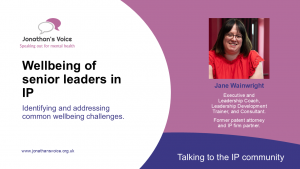Val McCartney, co-founder of the mental health charity Jonathan’s Voice writes
“Hope” might not be a word that immediately comes to mind when thinking about suicide. Indeed to those who have been recently bereaved by suicide, and for some for many years to come, it may be deeply antithetical to their feelings. Those on the edge who feel completely entrapped and in deep emotional pain will feel despair rather than hope.
So why choose such a theme? It has been chosen because it is a theme that carries a very positive message. Professor Rory O’Connor, President of the International Suicide Prevention Association (ISPA) https://www.iasp.info/ writes, “We believe that it will help us to instil light in those who have been touched by the darkness of suicide and self-harm. It also aims to inspire confidence in all of us, such that our actions, no matter how big or small, may provide hope to those who are struggling. The concept behind the theme is heavily rooted in the need to emphasise that it is possible to overcome feelings of hopelessness, that it is possible not only to survive but also to thrive in life. We can all play a role in supporting those experiencing a suicidal crisis or those bereaved by suicide” Professor O’Connor continues, “By creating hope through action such as providing a listening ear, signposting people to support services and sharing effective tools and resources to help cope, we can offer a solution other than suicide for those who can see no other alternative in a time of despair. By offering a glimmer of hope, we can and will save lives.”
Each individual or organization can take a step and make a difference, perhaps by asking someone how they are feeling. It may not feel easy to start a conversation but it’s important and could be crucial. One of the recent blogs on our website https://jonathansvoice.org.uk/a-conversation-is-good provides some guidance and signposts the reader to SIGNSS, a mental health conversation starter tool. In the past there was a myth that by asking someone about suicidal feelings you’re planting it into their head. The evidence is clear that this is not the case. Professor O’Connor again, “asking those questions doesn’t cause harm but they can get people the help they require and hopefully lead to the support they need.”
Organizations can and should promote mentally healthy workplaces as an integral part of Equality, Diversity and Inclusion. Jonathan’s Voice believes that mental health, like any other aspect of inclusivity, is championed from the top. The IP (Intellectual Property) Inclusive Senior Leaders’ Pledge https://ipinclusive.org.uk/newsandfeatures/the-ip-inclusive-senior-leaders-pledge/ is an excellent document to which the signatories have made a personal undertaking to its eight commitments. Is there something similar in your organization? Should there be?
We are an IP focused charity and would welcome the opportunity to speak with senior leaders in the IP sector to provide tailored advice and support for your organisation. This support is provided by mental health professionals and there is no charge. Please contact the team via our website https://jonathansvoice.org.uk/ or email val@jonathansvoice.org.uk
Research continues into understanding suicidal behaviour, including why people see suicide as the only escape from the deep darkness they are experiencing. Jonathan’s Voice is proud to offer financial support to a research project at the Suicidal Behaviour Laboratory, University of Glasgow. led by Professor O’Connor. Susie Bennett, the researcher on this project, writes, “Male suicide is the biggest killer of men under 50 in Britain, and according to the Samaritans three-quarters of all suicides in 2018 were male. I want to build a greater understanding of what causes suicidal feelings and behaviours in men and what more can be done to help”; hope through research.
NSPA (National Suicide Prevention Alliance) https://nspa.org.uk/ is promoting the theme of Hope through Action by inviting its members to share a few words about what “hope” means to them. These will be posted on their Twitter account https://twitter.com/nspa_uk?lang=en throughout World Suicide Prevention Day.
This is my contribution.
“My hope and my firm belief, as a parent bereaved by suicide, is that through speaking out about my tragic experience and encouraging others to share their experiences, the stigma associated with mental health will be reduced. Such stigma so often prevents people getting the support they need. Those experiencing mental health challenges will know that it’s ok not to be o.k.”
We can all challenge stigma where we find it. We can all offer a listening ear or a kind word. We can all encourage our workplaces and communities to support those who are struggling
We can all create hope through our actions.
Resources, facts and figures, suggested activities and personal stories that your organization might find useful in promoting World Suicide Prevention Day are available at









